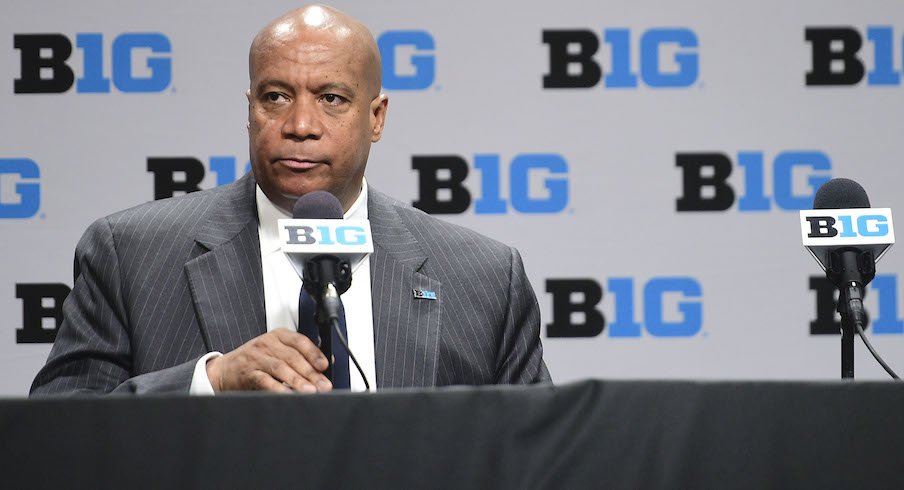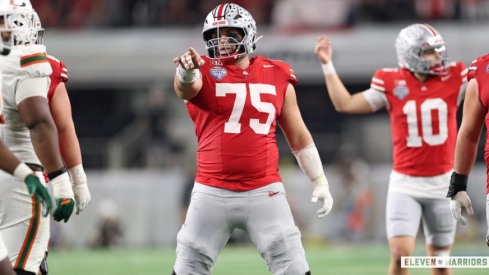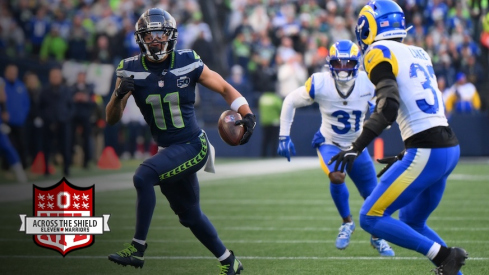Why, exactly, did the Big Ten decide it was time to pull the plug on its fall sports season last Tuesday?
What changed in the six days between the conference’s release of its new schedule for the 2020 football season and its announcement that it postponed the season to spring?
How many Big Ten schools were actually in favor of the decision to shut down fall sports, and which Big Ten schools opposed it?
How will the Big Ten help its athletes deal with the consequences of being unable to play their sports this fall, and does the conference actually have a plan for playing football in the winter or spring?
One week after the Big Ten announced its decision to cancel its fall sports season, we still don’t have the answers to those questions.
In his statement that accompanied the Big Ten’s announcement and his subsequent interview with Big Ten Network, Warren didn’t specify what ultimately convinced the conference that it was too risky to proceed forward with fall sports, simply saying that “it became abundantly clear that there was too much uncertainty regarding potential medical risks to allow our student-athletes to compete this fall.”
While the answer certainly isn't a complete mystery – more than 170,000 Americans have died of COVID-19 – the Big Ten has declined to release any of the medical information that guided the conference’s decision. That comes in stark contrast with the Pac-12, the only other Power 5 conference that has postponed its fall sports so far, which released a 12-page document outlining recommendations from the conference’s medical advisory committee that ultimately guided the conference’s decision.
Since his initial interview with BTN, Warren has not made any public appearances or been made available to the majority of media who cover Big Ten sports – his only further comments have come in a few one-on-one interviews with select reporters – and more troublingly, he has not made himself available to answer questions from the people who are most directly affected by the conference’s decision to shut down fall sports: athletes, their families and coaches.
In turn, many members of those groups have spoken out publicly to question the conference’s decision and the lack of transparency behind the decision. Ohio State quarterback Justin Fields started a petition, calling on the Big Ten to reinstate the fall sports season, that had received over 260,000 signatures by Monday night. Ohio State coach Ryan Day tweeted Monday that he supports Fields’ efforts, and a multitude of Ohio State staffers – perhaps most prominently, director of player personnel Mark Pantoni – have been vocal on social media about their desire for more answers from the conference.
Transparency is the foundation of legitimacy. Without it, you can expect people to question your motives and question whether you made a good decision."#WeWantAnswers https://t.co/f9do1aXbP5
— Mark Pantoni (@markpantoni) August 17, 2020
The Football Parents at Ohio State coalition, meanwhile, sent a letter to Warren and the Big Ten on Saturday calling on the conference to reconsider its decision and to give players and their families the opportunity to meet with Warren over Zoom and ask him their questions about the conference’s decision. Parents from Iowa, Nebraska, Penn State and Michigan have also sent similar letters with similar demands to the commissioner.
Ohio State’s parents requested a response from Warren by Wednesday; as of Monday night, they hadn’t gotten one yet, which has only increased their frustration. Randy Wade, the father of Ohio State cornerback Shaun Wade, announced Monday night that he had booked a flight to Chicago to stage a protest outside the Big Ten’s headquarters on Friday morning. And numerous other parents of Ohio State players who have talked to Eleven Warriors over the past week have expressed anger about the conference’s lack of communication with them and their sons regarding its decision to shut the football season down.
“We deserve some kind of response,” said Nancy Werner, the mother of Ohio State linebacker Pete Werner. “We don’t know anything. The coaches don’t know anything. I just don’t think, as huge of a decision as this was and many people’s lives that were affected, we should get some answers. Are they going to be answers I want? I certainly hope so. I hope. But I don’t know. We’ve heard nothing.”
While the Big Ten – not only Warren, but other conference officials and most of the university presidents and chancellors who made the final decision – has remained silent over the past week, the calls for the conference to provide more answers have only grown louder. And more and more questions have been raised about the actual process the Big Ten used to come to a decision, too, as Penn State athletic director Sandy Barbour and Minnesota president Joan Gabel have both indicated there was no actual vote to decide the fate of Big Ten fall sports.
Although the Big Ten isn’t volunteering much information itself, and it’s unclear whether the groundswell of opposition to the conference’s decision will actually change anything, the search for answers marches on. The players’ fight to save their season now even includes the services of Tom Mars, the attorney who represented Fields last year in his successful appeal to the NCAA for immediate eligibility, who told SiriusXM Radio on Monday that he believes the conference’s lack of communication about its decision could ultimately lead to Warren’s demise.
“In my view, the longer Kevin Warren resists calls for transparency, the more likely it is that he’s going to have a very short tenure as a college football commissioner,” Mars said.
College sports attorney Tom Mars told @PlankShow & @JonJansen77 one way or another the information the #BigTen used to decide to postpone the 2020 fall sports season will end up in the hands of players and parents. pic.twitter.com/7DkUgv7mI6
— College Sports on SiriusXM (@SXMCollege) August 17, 2020
In time, the Big Ten’s decision not to play fall sports could prove to be prudent. While the ACC, Big 12 and SEC are among six Football Bowl Subdivision conferences still planning to play fall football right now, it’s still far from certain that will actually happen; plenty of ominous signs remain, like North Carolina’s decision on Monday to send its students home (though not its student-athletes) after just one week.
Brian Hainline, the NCAA’s chief medical officer, has issued several warnings in recent interviews – though the NCAA doesn’t actually have the authority to tell those conferences not to play – that it will be difficult for fall sports to proceed forward in the current state of the pandemic; in an interview with CNN over the weekend, Hainline said “the pathway to play sports is so exceedingly narrow right now,” and that more testing will need to be available for those conferences to be able to meet the NCAA’s return-to-play guidelines this fall.
But even if the Big Ten’s decision ultimately shows to be the correct decision, and other conferences eventually follow its lead and shut down their fall football seasons, that doesn’t excuse the conference’s lack of communication now about why it made the decision when it did, how that decision was made and what it’s going to do to help the affected teams proceed forward as they adjust to not playing this fall and potentially playing in the spring.
While Warren and the Big Ten might simply be hoping to stay in the shadows until the current wave of opposition subsides, it seems unlikely that storm is going to stop brewing anytime soon, especially as long as other conferences continue moving toward playing actual football this fall.


